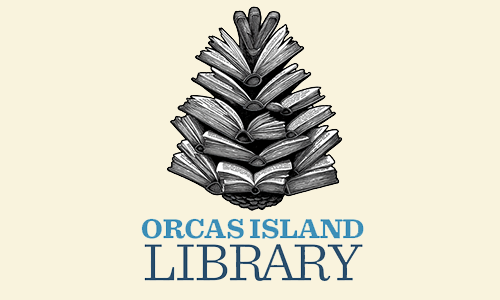— By Matthew Gilbert, Orcas Issues reporter —
Tourism has been a flashpoint in the tumult of COVID and its threats to both health and economic stability: How quickly to open up, how well the county is prepared, the vulnerability of local businesses, fear and concern on all sides.
SJC is obviously a tourism-dependent economy, but given the impacts of the current pandemic, is it overly dependent? The pandemic has emphasized both the importance of tourism to the island economy as well as the county’s exposure to disruptions (while also invoking, for longer-term residents, an experience of what Orcas felt like 10 or more years ago). The winner in November should thus have a deep understanding of tourism’s influence and a vision for its future role in the evolution of our economic and cultural identity.
In thinking about the county’s economic future (and assuming some kind of post- pandemic “normal”), it might be helpful to review the Economics component of the current Vision Statement for the Comp Plan – the county’s guiding document for policy making and regulation. Below is the 1999 original and how it reads today:
1999: We support a pattern of economic growth and development which serves the needs of our community and which recognizes the rural, residential, quiet, agricultural, marine, and isolated nature of the islands. Our economy comprises a wide spectrum of stable, year-round activities that provide employment for islanders. We support and encourage traditional industries including forestry, farming, aquaculture, construction, fishing, and tourism without jeopardizing the resources on which they depend. We have home occupations and cottage industries which are compatible with surrounding neighborhoods.
2018: We support a diverse, resilient, and sustainable economy while respecting the natural world. This economy serves the needs of our community and recognizes the rural, residential, quiet, agricultural, marine, and isolated nature of the islands. Our economy comprises a wide spectrum of stable, year-round activities that provide wages that allow islanders to live, work, and thrive locally.
In this second in a series of questions posed by Orcas Issues to the candidates for County Council (District 2) – Michael Durland, Rick Hughes, and Cindy Wolf – the focus is on tourism. To each we asked the following with the option to use them as guidelines for a general position statement.
We also imposed a “reasonable” word limit; please follow up with each candidate directly for more details.
- Acknowledging that tourism will always play some role in the islands’ economy and character, how realistic – or necessary, or wise – do you think it is to lower the dependency of the county on visitor dollars and reduce or manage its impact on island life?
- What can the county do to build an economy that is less reliant on tourism?
- Should tourism be allowed to self-regulate such as through swings in the economy or limitations in the ferry system (or unexpected events like COVID) or should the county take a more proactive role in controlling its impacts (e.g., limits on vacation rentals)?
- What did you learn from the recently released Tourism Study? Are you in favor of a Tourism Master Plan to help guide and shape tourism in the years ahead?
- Is it possible to be both pro-tourism and pro-community? Can tourism growth and rural character co-exist? How would you pursue an optimal balance between the two?
Cindy Wolf
Being a favored tourist destination gives us bargaining leverage when dealing with the state and federal government about open space, wildlife, ferries and fisheries issues. Also, many of the businesses we locals enjoy probably wouldn’t be here without the extra income tourism provides. That said, tourism must exist in harmony with our rural way of life. We cannot offer our guests a good experience if there are too many of them here at the same time. We also cannot provide for them in case of a major emergency
or disaster.
The results of the survey on tourism say business owners, residents, and visitors all agreed that at the height of a normal summer, we are at capacity. Through smart planning decisions about lodging and transportation, we can manage visitor numbers and reduce the environmental impact of tourism on the islands while still allowing guests to enjoy their time here. Planning should also make the islands friendlier to both guests and locals with disabilities.
Our islands haven’t always been so tourist dependent. We should nurture parts of our existing economy such as small trades, health care, and home repair/renovation that don’t rely on tourists or building new vacation homes. We must encourage young people to settle here and bring their entrepreneurial ideas and energy which means addressing affordable housing and taking good care of our schools.
That brings us to vacation rentals. It makes sense to let people who live in the county to offer vacation rentals at their address of residence. This county is also a traditional summer-house destination for a number of families who should be allowed to rent out one vacation/second home for a limited number of weeks per year.
The problem, as I see it, are vacation rental owners who view the islands as an investment opportunity rather than as a year-round community. The proliferation of vacation rentals shrinks year-round rental stock, drives up real estate prices, and prices the middle class out of our housing market. Permits should be issued to the owner, not the property, and expire when a house changes hands. Anti-nuisance ordinances should be enforced and provide for penalties that include revocation of permit for repeated violations.
According to the tourism survey, long-time residents are more likely to advocate for less environmental damage in the name of economic development than recent arrivals. Perhaps they have lived through a few boom-and-bust cycles and know it’s worth finding a way to get through the tough times while preserving the best things about this place. Quality of life has drawn people here for 10,000 years. It’s what tourists come for and it’s our most important legacy.
Michael Durland
The San Juan Islands have always been an attraction and place of refuge. We are fortunate to live in an island paradise where it takes a certain fortitude to stay here year- round. I want to keep this as a community that attracts tourists but not a destination resort that depends on tourists. We cannot continue to provide amenities for tourists that negatively impact the reasons we all live here.
We need to embrace our established inns and lodges and allow limited bed and breakfasts and transient rentals without harming our residential neighborhoods and using up our limited resources. One of the reasons visitors come here is to enjoy our rural lifestyle. We cannot continue to build up our infrastructure to accommodate what our visitors find at home and risk losing our uniqueness.
There needs to be a Tourism Master Plan which not only encourages tourism but protects our environment and rural way of life. It is imperative that we take a hard look at what unregulated tourism will do to the Islands. We need to increase our self- sufficiency with more renewable energy projects and agricultural products. We need to encourage small businesses not dependent on tourist dollars.
The tourism study was a good start and we need to discuss and build from there. I recently read an article by Tim O’Reilly (found of O’Reilly Media who popularized the terms “open source” and “Web 2.0”). Everyone should read it. We are entering a new age, and here in the San Juan Islands, we must be ready for it. We are in a position to see both tourists and new arrivals who plan to stay flood our islands. Strong leadership that listens and responds to our diverse population is needed to both welcome new
citizens and protect our fragile environment and natural resources.
Rick Hughes
Tourism on Orcas can be traced back to 1905 and has always played a role in the economy but San Juan County needs to expand economic diversity to create a sustainable economy. For example, the county works with Rock Island in support a fiber and LTE network. Internet access is the best way to expand the economy. The Covid-19 crisis clearly shows that remote working is a desirable way to spend time in the community while maintaining off-island jobs.
The county also supports industries focused on climate-forward products. We plan to develop one megawatt of solar power on county buildings that will cover 100% of their power needs while supporting local, family-wage jobs and creating a carbon-neutral footprint.
The county is working with farmers, helping manufacturing/agricultural companies to develop and distribute products, and recruiting companies to relocate to the islands. The county will fund the EDC’s (Economic Development Council) trade programs, training the next generation of small business owners and encouraging residents to shop locally.
I plan to expand vacation rental regulations, pausing new permits until the county is in Phase 4, setting an annual cap on new applications and a ceiling for total permits, reducing total allowed guests, and safeguarding natural resources by requiring meters on all water use.
Tourism studies are important planning platforms for protecting natural areas. I support a Tourism Master Plan and will include it in the Comprehensive Plan. The plan will guide the county on what facilities are needed such as bike trails, pathways, parking, and bathrooms while helping to determine what future levels of tourism the county can support.
I am pro-community and pro-tourism. The county should not make policy directly tied to tourism. It has used LTAC (lodging tax) dollars to build pathways, bathrooms, dog parks, parking, marine facilities, play structures, and park/fair improvements. While these facilities serve visitors, they were built for the community.
Tourism is a complex issue. In 2008, the community needed it, but once the economy improved, people felt it was too much. What has changed: the economy, new residents, new beliefs, federal issues, or a crazy world? I don’t know, but tourism is important, and the county needs to diversify.
[Note: The League of Women Voters of the San Juans will hold a virtual District 2 candidate forum at 5:30 p.m. Tuesday, July 7. To register, contact
candidateforums2020@gmail.com. A Zoom link will be sent prior to the meeting.]
**If you are reading theOrcasonian for free, thank your fellow islanders. If you would like to support theOrcasonian CLICK HERE to set your modestly-priced, voluntary subscription. Otherwise, no worries; we’re happy to share with you.**







